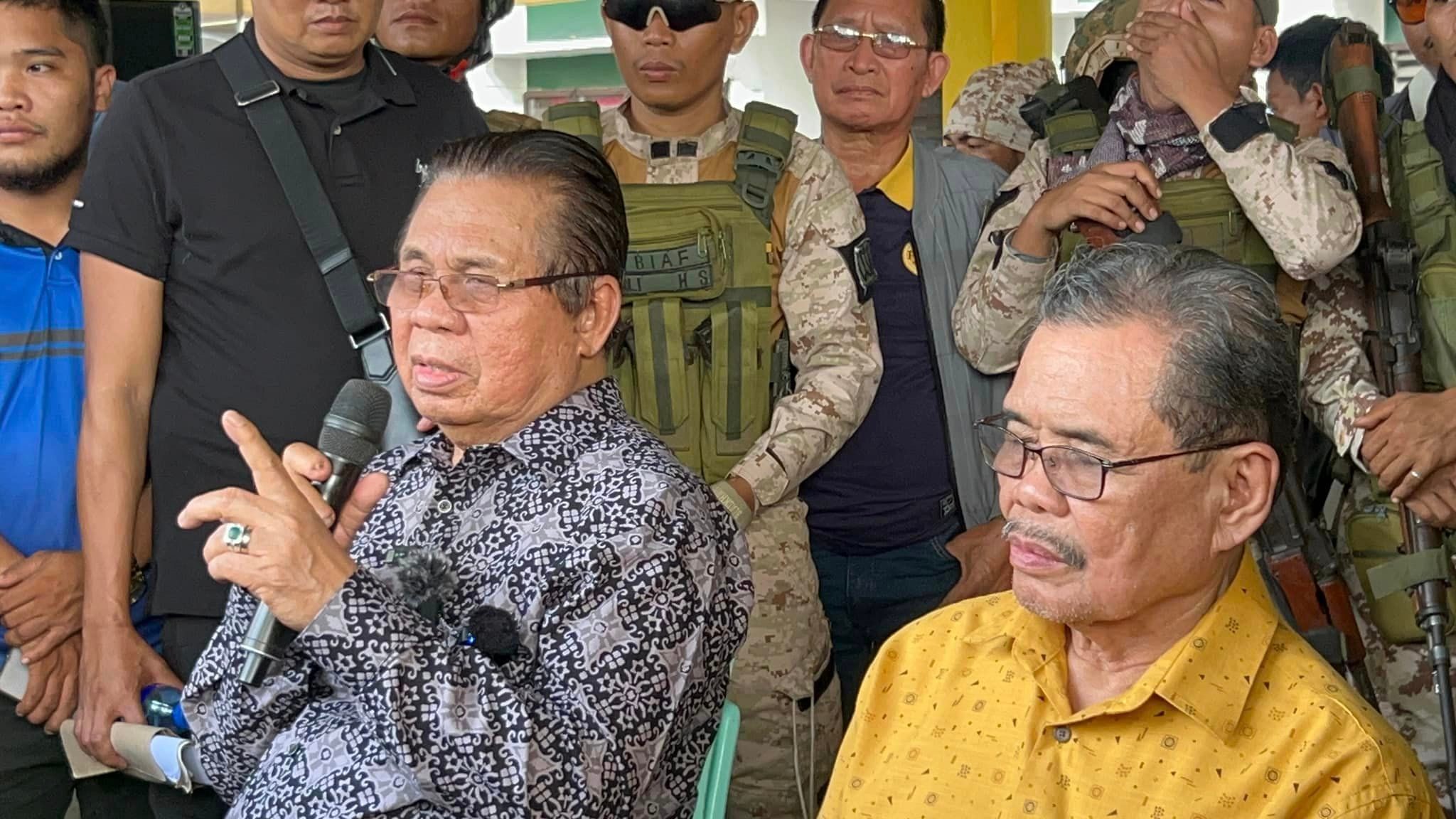Physical Address
304 North Cardinal St.
Dorchester Center, MA 02124
Physical Address
304 North Cardinal St.
Dorchester Center, MA 02124

The MILF says the decommissioning should be done in a graduated manner. The national government must also show substantial compliance with the socio-economic interventions for combatants.
The Moro Islamic Liberation Front (MILF) has suspended the decommissioning of its final batch of combatants, citing the government’s alleged failure to deliver “substantially on its socioeconomic commitments.”
“Wherefore, premises considered, it is hereby resolved that the decommissioning of the remaining 14,000 MILF combatants and 2,450 weapons shall commence only upon the substantial compliance by the GPH (Philippine government) in the other tracks of normalization, including the provision of socio-economic package as agreed upon by the GPH and MILF Peace Implementing Panels to the 26,145 combatants (those under the 1st 3 phases),” the MILF Central Committee said in a memorandum made public on July 26.
The MILF had agreed to decommission its combatants and firearms as part of its peace deal with the Philippine government. The group had made it clear that it was not equivalent to surrendering, but their firearms will be handed over to the Independent Decommissioning Body to put “beyond use.”
“In the spirit of continued partnership, we formally invite our partners in the MILF leadership to reaffirm our shared vision: a BARMM free of armed groups and illegal firearms, where the rule of law prevails and peace reigns,” the Office of the Presidential Adviser on Peace, Reconciliation and Unity said.
“This is our joint commitment to fulfilling the letter and spirit of the Comprehensive Agreement on the Bangsamoro,” it added.
The BARMM was established in 2019, following the ratification of the Bangsamoro Organic Law through a plebiscite. The BARMM goal was a region that “enjoys genuine autonomy, where its inhabitants enjoy adequate social services, peaceful coexistence between and among its peoples, resilience from disasters and other shocks, support for increase in the socio-economic well-being of communities and households, and where there is reconciliation and healing, after facilitation of a transitional justice process,” according to the MILF.
The peace process includes normalization or a system that would ensure that combatants and conflict-stricken communities “are anticipated to be transformed to productive citizens and peaceful societies.”
Decommissioning, according to the MILF, is an important aspect of normalization. In these processes, the Philippine government is also expected to provide socio-economic interventions to ensure that the former combatants will become “productive citizens.”
In 2015, under the administration of the late president Benigno Aquino III, the MILF decommissioned 75 weapons and 145 of its combatants. Over the years, the group also continued its decommissioning process:
The MILF said that of the 26,145 MILF forces decommissioned, not a single one had successfully transitioned to “productive civilian life.” It said other interventions listed for decommissioning “have essentially not been provided,” except for the P100,000 allotted for each combatant.
Malacañang Press Officer Claire Castro said on Friday, August 2, that the government would seek a dialogue with the MILF, adding that the government has already allotted P100,000-cash assistance for each decommissioned combatant, and more than P4 billion for socio-economic programs.
Castro said that the government is also ready to publicize its report on efforts taken to reintegrate the decommissioned combatants into society.
In its memorandum, the MILF said the decommissioning should be done in a graduated manner and that the national government must show substantial compliance to the socio-economic interventions for combatants.
“The track on decommissioning of MILF forces and weapons is very important in the normalization process, but so are the other tracks, i.e., policing, redeployment of troops and units of the Armed Forces of the Philippines (AFP), disbandment of private armed groups (PAGS), socio-economic development, detection and clearance of unexploded ordnances, transitional justice and reconciliation, and the confidence building measures of camps transformation, and amnesty, pardon and other available processes to persons charged with or convicted of crimes connected to the armed conflict in Mindanao,” the group said.
The MILF has been part of BARMM governance since its establishment in 2019.
MILF’s Ahod “Al Haj Murad” Ebrahim served as interim chief minister for around six years. However, in March this year, President Ferdinand Marcos Jr. replaced him with Maguindanao del Norte Governor Abdulraof Macacua. – Rappler.com